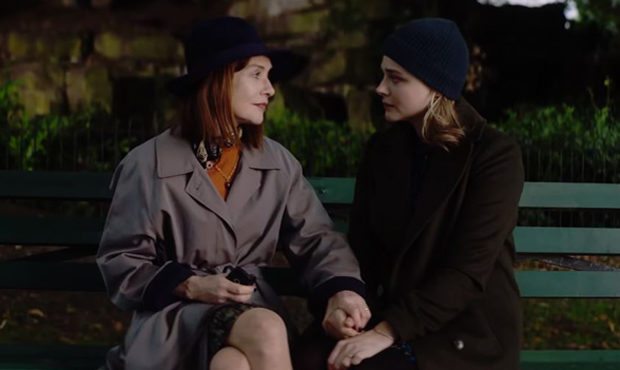
************************This review contains a mild spoiler****************************
“We were meant for love. Not this terrible isolation, Frances.”
We are currently living in an era of human history that has connected people around the globe on an unprecedented level. A person living in Los Angeles can not only call a friend located in New Zealand on the phone, they can look them in the eyes while doing so through video installed on said phones or through the cameras on their laptops. People with shared interests can spark friendships and love affairs with others anywhere in the world without ever having to leave their homes. With such interconnectivity always within arms reach, it would stand to reason that no one would ever feel without company. But alas, our increasingly close world has left people feeling more alone than ever, with reported loneliness in the United States having doubled over the past 50 years. Human beings are highly social animals and meaningful connection is integral in our overall health. As communication through technology becomes as emphasized and common as physical interpersonal interaction, what effect does this have on the human condition?
Greta follows a young Bostonian woman named Frances (Chloë Grace Moretz) who has moved to New York a year after the loss of her mother. One day after she finds a handbag that has been left on the New York subway, Frances returns it to its owner Greta (Isabelle Huppert), an older piano teacher who lives alone and the two spark up a friendship. Soon after, Frances has to end the relationship when Greta becomes increasingly attached and obsessive. In doing so, both Frances and the audience slowly learn that Greta’s seemingly innocent persona and background are anything but.
Greta uses thriller genre fare to explore the effects of loneliness on human behavior. The film’s two central characters, Frances and Greta, each suffer from loneliness originating from two separate places. For Frances, her loneliness is fueled in part by her continued grieving over the loss of her mother. She has not truly moved on and as a result, has isolated herself from connecting with the people in her life, such as her roommate Erica (Maika Monroe) and father Chris (Colm Feore). It is not until she meets Greta, an older woman who shows much interest in her and her life much like a maternal figure would, that she seemingly allows herself to connect with someone. As the film’s story progresses, we come to find out that Greta’s loneliness comes from a much more sinister place; her need to control others in order to ensure she is never abandoned. Greta’s extreme lengths to avoid loneliness work as a grotesque self-fullfilling prophecy that ensure in trying to beat being alone, she will end up in a never-ending cycle of abandonment. Director Neil Jordan makes this point poignantly when Greta abducts Frances; loneliness can be a prison and Frances literally becomes a prisoner of Greta’s. By the end of her ordeal, Frances learns what could be a helpful lesson for the lonely; that her refuge had been by her side all along, in her case, her friend and roommate Erica who shows that she was always there for Frances even though she couldn’t recognize it through the fog of her grief. As we attempt to deal with our feelings of crushing solitude, often times we fail to see those loved ones in our lives who could offer a helping hand. But as is often the case, the helpers are never too far away.
Isabelle Huppert is enigmatic as the title character, utilizing all of her legendary acting skill to portray a deliciously creepy villain who inflicts the viewer with seat clinching apprehension anytime she appears onscreen. The decorated actress may not be the first actor you’d think of when casting a menacing villain, but she pulls it off with entrancing aplomb, completely dominating the film and everything surrounding her. Maika Monroe also acts as the perfect supporting best friend character, contributing the perfect amount of comedic relief but also making her character useful and integral to the plot. Viewers will come to care for Erica in a way that not just any actress would be able to pull off. Chloë Grace Moretz is more than able to keep up with the illustrious Huppert as the two share a believable chemistry that work in powering the film forward.
Greta is an engrossing thriller that does a fantastic job of building a palpable sense of foreboding and dread as we watch Greta slowly lose her mind and Frances slowly come to the realization that she’s made a grave mistake inviting this woman into her life. The mark of a good thriller or horror film is a protagonist making frustratingly stupid decisions that madden you as a viewer, indicating that you’re fully engrossed in the story being told. Greta achieves this feat more than a few times. Famed cinematographer Seamus McGarvey helms the camera in Greta and infuses the film with stunning shots and inventive angles that elevate it past being just another thriller. The first two opening shots of the two main characters are tracking shots from the same perspective, providing a glimpse into the film’s theme of exploring loneliness from the two different vantage points. Greta’s thick tension and the performances of its cast made this a pleasant surprise and a film definitely worth checking out.
Image: Focus Features

